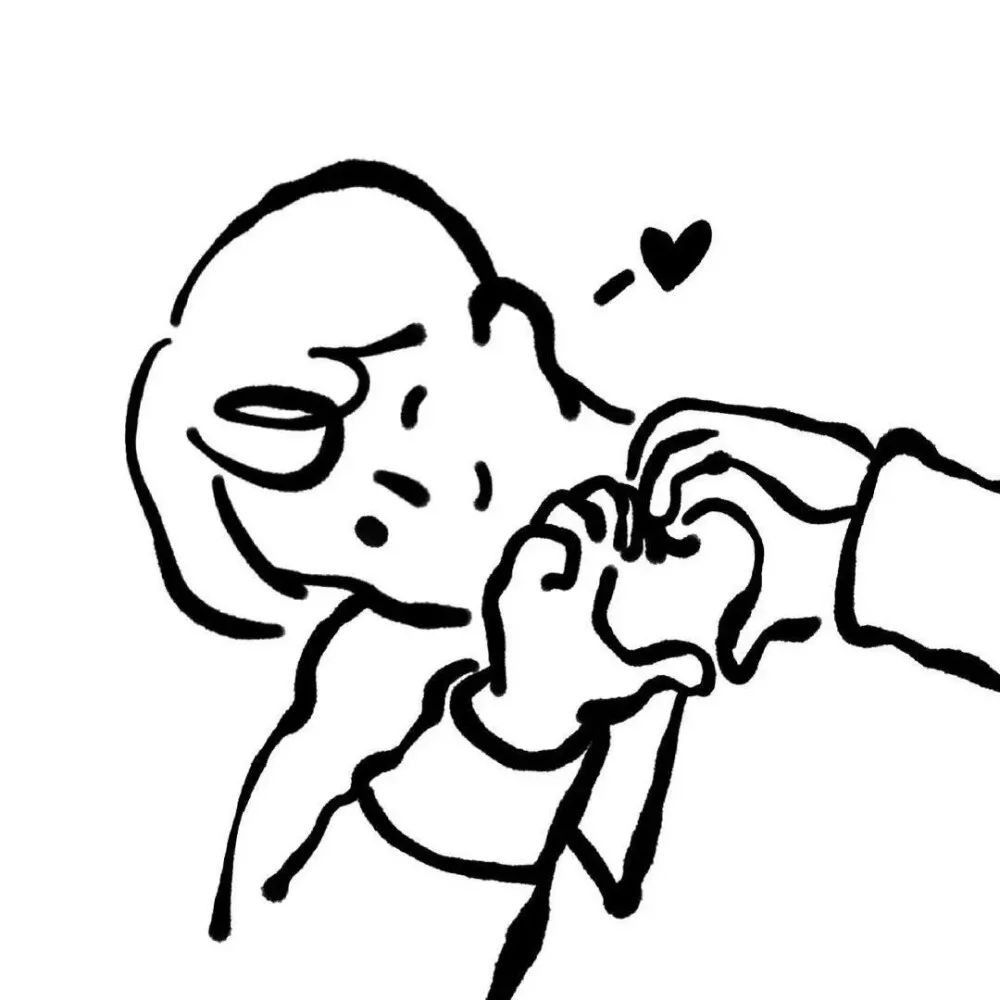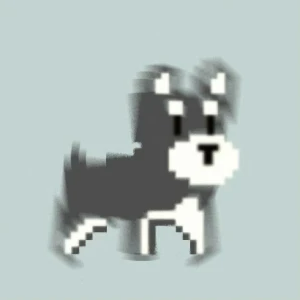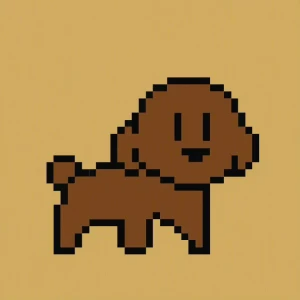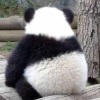 北有云溪
北有云溪-
PEP五年级上册四会单词词汇表
Unit 1
Young (年轻的) funny (滑稽可笑的) tall (高的)
strong (强壮的) kind (和蔼的、亲切的)
old (年老的) short (矮的)thin (瘦的)
Mr (先生) like (像、喜欢) strict (严格的)
smart (聪明的、巧妙的) active (积极的、活跃的)
quiet (安静的、文静的)very (很、非常) but (但是)
Unit 2
Mondy (星期一) Tuesday (星期二) Wednesday (星期三)
Thursday (星期四) Friday (星期五) Saturday (星期六)
Sunday (星期天) day (天) have (有、吃) on (在…..时候)
do homework (做作业) watch TV (看电视) read books (读书)
Unit 3
eggplant (茄子) fish (鱼) green beans (青豆) tofu (豆腐)
potato (土豆) tomato (西红柿) for (为) lunch (中餐)
we (我们) tasty (好吃的) sweet (甜的) sour (酸的)
fresh (新鲜的) salty (咸的) favourite (最喜欢的)
they are (他们是) fruit (水果) grape (葡萄)
Unit 4
Cook the meals (倒垃圾) water the flowers (浇花)
sweep the floor (扫地) clean the bedroom (打扫卧室)
make the bed (铺床) set the table (摆饭桌)
wash the clothes (洗碗碟) do the dishes (收拾衣服)
use a computer (使用计算机
Unit 5
curtain (空调) trash bin (垃圾箱) closet (壁橱)
mirror (镜子) end table (床头柜) bedroom (卧室)
kitchen (厨房) bathroom (卫生间) living room (客厅)
in (在…里面) on (在…上面) under (在…下面) near (在..旁边)
behind (在…后边) clothes (衣服)
Unit 6
river (河流) flower (花) grass (草) lake (湖泊) forest (森林)
path (路) pake (公园) picture (照片) hourse (房子) bridge (桥) tree (树) road (公路) building (建筑物) clean (干净的)
PEP五年级下册四会单词词汇表
Unit 1
do morning exercises(晨练) eat breakfast(吃早饭)
have english class(上英语课) play sports(进行体育运动)
eat dinner(吃晚饭) when(什么时候)
evening(夜晚;晚上) get up(起床)
at(在……点钟) usually(通常;一般) noon(中午)
climb mountains(爬山) go shopping(购物;买东西)
play the piano(弹钢琴) visit grandparents(看望祖父母)
go hiking(去远足) weekend(周末) often(经常) sometimes(有时候)
Unit 2
spring(春天) summer(夏天) fall(秋天) winter(冬天) season季节) which(哪一个) best(最;极) swim(游泳)
fly kites(放风筝) skate(滑冰;滑冰鞋) make a snowman(堆雪人)
plant trees(种树) why(为什么) because(因为) sleep(睡觉)
Unit 3
Jan./January(一月) Feb./February(二月) Mar./March(三月) Apr./April(四月) May(五月) June(六月) July(七月) Aug./Augest(八月) Sept./September(九月) Oct./October(十月) Nov./November(十一月) Dec./December(十二月) birthday(生日) uncle(叔叔;舅舅) her(她的) date(日期)
Unit 4
draw pictures(画画) cook dinner(做饭) read a book(看书)answer the phone(接电话) mom(妈妈) listen to music9(听音乐) clean the room(打扫房间) write a letter(写信)
write an e-mail(写电子邮件) grandpa(爷爷;外公) study(书房)
Unit 5
fly(飞) jump(跳) walk(走) run(跑) swim(游泳)
kangaroo(袋鼠) sleep(睡觉) climb(往上爬) fight(打架)
swing(荡;荡秋千) drink water(喝水)
Unit 6
take pictures(照相) watch insects(观察昆虫) pick up leaves(采摘树叶) do an experiment(做实验) catch butterfly(捉蝴蝶) honey(蜂蜜) count insects(数昆虫) collect leaves(收集树叶) wtite a report(写报告) play chess(下棋) have a picnic(举行野餐)
 黑桃云
黑桃云-
Unit 1
Young (年轻的) funny (滑稽可笑的) tall (高的)
strong (强壮的) kind (和蔼的、亲切的)
old (年老的) short (矮的)thin (瘦的)
Mr (先生) like (像、喜欢) strict (严格的)
smart (聪明的、巧妙的) active (积极的、活跃的)
quiet (安静的、文静的)very (很、非常) but (但是)
Unit 2
Mondy (星期一) Tuesday (星期二) Wednesday (星期三)
Thursday (星期四) Friday (星期五) Saturday (星期六)
Sunday (星期天) day (天) have (有、吃) on (在…..时候)
do homework (做作业) watch TV (看电视) read books (读书)
Unit 3
eggplant (茄子) fish (鱼) green beans (青豆) tofu (豆腐)
potato (土豆) tomato (西红柿) for (为) lunch (中餐)
we (我们) tasty (好吃的) sweet (甜的) sour (酸的)
fresh (新鲜的) salty (咸的) favourite (最喜欢的)
they are (他们是) fruit (水果) grape (葡萄)
Unit 4
Cook the meals (倒垃圾) water the flowers (浇花)
sweep the floor (扫地) clean the bedroom (打扫卧室)
make the bed (铺床) set the table (摆饭桌)
wash the clothes (洗碗碟) do the dishes (收拾衣服)
use a computer (使用计算机
Unit 5
curtain (空调) trash bin (垃圾箱) closet (壁橱)
mirror (镜子) end table (床头柜) bedroom (卧室)
kitchen (厨房) bathroom (卫生间) living room (客厅)
in (在…里面) on (在…上面) under (在…下面) near (在..旁边)
behind (在…后边) clothes (衣服)
Unit 6
river (河流) flower (花) grass (草) lake (湖泊) forest (森林)
path (路) pake (公园) picture (照片) hourse (房子) bridge (桥) tree (树) road (公路) building (建筑物) clean (干净的)
 苏州马小云
苏州马小云-
好象是这些:
do morning exercises(晨练) eat breakfast(吃早饭)
have english class(上英语课) play sports(进行体育运动)
eat dinner(吃晚饭) when(什么时候)
evening(夜晚;晚上) get up(起床)
at(在……点钟) usually(通常;一般) noon(中午)
climb mountains(爬山) go shopping(购物;买东西)
play the piano(弹钢琴) visit grandparents(看望祖父母)
go hiking(去远足) weekend(周末) often(经常) sometimes(有时候)
Unit 2
spring(春天) summer(夏天) fall(秋天) winter(冬天) season季节) which(哪一个) best(最;极) swim(游泳)
fly kites(放风筝) skate(滑冰;滑冰鞋) make a snowman(堆雪人)
plant trees(种树) why(为什么) because(因为) sleep(睡觉)
Unit 3
Jan./January(一月) Feb./February(二月) Mar./March(三月) Apr./April(四月) May(五月) June(六月) July(七月) Aug./Augest(八月) Sept./September(九月) Oct./October(十月) Nov./November(十一月) Dec./December(十二月) birthday(生日) uncle(叔叔;舅舅) her(她的) date(日期)
Unit 4
draw pictures(画画) cook dinner(做饭) read a book(看书)answer the phone(接电话) mom(妈妈) listen to music9(听音乐) clean the room(打扫房间) write a letter(写信)
write an e-mail(写电子邮件) grandpa(爷爷;外公) study(书房)
Unit 5
fly(飞) jump(跳) walk(走) run(跑) swim(游泳)
kangaroo(袋鼠) sleep(睡觉) climb(往上爬) fight(打架)
swing(荡;荡秋千) drink water(喝水)
Unit 6
take pictures(照相) watch insects(观察昆虫) pick up leaves(采摘树叶) do an experiment(做实验) catch butterfly(捉蝴蝶) honey(蜂蜜) count insects(数昆虫) collect leaves(收集树叶) wtite a report(写报告) play chess(下棋) have a picnic(举行野餐)
 慧慧
慧慧-
do morning exercises(晨练) eat breakfast(吃早饭)
have english class(上英语课) play sports(进行体育运动)
eat dinner(吃晚饭) when(什么时候)
evening(夜晚;晚上) get up(起床)
at(在……点钟) usually(通常;一般) noon(中午)
climb mountains(爬山) go shopping(购物;买东西)
play the piano(弹钢琴) visit grandparents(看望祖父母)
go hiking(去远足) weekend(周末) often(经常) sometimes(有时候)
 tt白
tt白-
PEP五年级上册四会单词词汇表
Unit 1
Young (年轻的) funny (滑稽可笑的) tall (高的)
strong (强壮的) kind (和蔼的、亲切的)
old (年老的) short (矮的)thin (瘦的)
Mr (先生) like (像、喜欢) strict (严格的)
smart (聪明的、巧妙的) active (积极的、活跃的)
quiet (安静的、文静的)very (很、非常) but (但是)
Unit 2
Mondy (星期一) Tuesday (星期二) Wednesday (星期三)
Thursday (星期四) Friday (星期五) Saturday (星期六)
Sunday (星期天) day (天) have (有、吃) on (在…..时候)
do homework (做作业) watch TV (看电视) read books (读书)
Unit 3
eggplant (茄子) fish (鱼) green beans (青豆) tofu (豆腐)
potato (土豆) tomato (西红柿) for (为) lunch (中餐)
we (我们) tasty (好吃的) sweet (甜的) sour (酸的)
fresh (新鲜的) salty (咸的) favourite (最喜欢的)
they are (他们是) fruit (水果) grape (葡萄)
Unit 4
Cook the meals (倒垃圾) water the flowers (浇花)
sweep the floor (扫地) clean the bedroom (打扫卧室)
make the bed (铺床) set the table (摆饭桌)
wash the clothes (洗碗碟) do the dishes (收拾衣服)
use a computer (使用计算机
Unit 5
curtain (空调) trash bin (垃圾箱) closet (壁橱)
mirror (镜子) end table (床头柜) bedroom (卧室)
kitchen (厨房) bathroom (卫生间) living room (客厅)
in (在…里面) on (在…上面) under (在…下面) near (在..旁边)
behind (在…后边) clothes (衣服)
Unit 6
river (河流) flower (花) grass (草) lake (湖泊) forest (森林)
path (路) pake (公园) picture (照片) hourse (房子) bridge (桥) tree (树) road (公路) building (建筑物) clean (干净的)
 南yi
南yi-
Unit 1
Young (年轻的) funny (滑稽可笑的) tall (高的)
strong (强壮的) kind (和蔼的、亲切的)
old (年老的) short (矮的)thin (瘦的)
Mr (先生) like (像、喜欢) strict (严格的)
smart (聪明的、巧妙的) active (积极的、活跃的)
quiet (安静的、文静的)very (很、非常) but (但是)
Unit 2
Mondy (星期一) Tuesday (星期二) Wednesday (星期三)
Thursday (星期四) Friday (星期五) Saturday (星期六)
Sunday (星期天) day (天) have (有、吃) on (在…..时候)
do homework (做作业) watch TV (看电视) read books (读书)
Unit 3
eggplant (茄子) fish (鱼) green beans (青豆) tofu (豆腐)
potato (土豆) tomato (西红柿) for (为) lunch (中餐)
we (我们) tasty (好吃的) sweet (甜的) sour (酸的)
fresh (新鲜的) salty (咸的) favourite (最喜欢的)
they are (他们是) fruit (水果) grape (葡萄)
Unit 4
Cook the meals (倒垃圾) water the flowers (浇花)
sweep the floor (扫地) clean the bedroom (打扫卧室)
make the bed (铺床) set the table (摆饭桌)
wash the clothes (洗碗碟) do the dishes (收拾衣服)
use a computer (使用计算机
Unit 5
curtain (空调) trash bin (垃圾箱) closet (壁橱)
mirror (镜子) end table (床头柜) bedroom (卧室)
kitchen (厨房) bathroom (卫生间) living room (客厅)
in (在…里面) on (在…上面) under (在…下面) near (在..旁边)
behind (在…后边) clothes (衣服)
Unit 6
river (河流) flower (花) grass (草) lake (湖泊) forest (森林)
path (路) pake (公园) picture (照片) hourse (房子) bridge (桥) tree (树) road (公路) building (建筑物) clean (干净的)
 snjk
snjk-
小学英语学历考试词汇表Aafternoon
下午American美国人America美国am是
and
和a,
an一,一个(不定冠词)apple
苹果April
四月are
是ask
问at
在August
八月aunt
阿姨;婶婶Bbad
坏的,严重的bag
包,书包ball
球banana
香蕉basketball篮球be
是beautiful
美丽的bed
床big
大的bike
自行车bird
鸟birthday
生日black
黑色的blue
兰色的boat
船body身体book
书box
盒子,箱子boy
男孩bread
面包breakfast
早饭bus
公共汽车but
但是buy
买bye
再见Ccake
蛋糕can
可以,能够cap
帽子car
汽车card
卡片cat
帽chair
椅子chicken
鸡肉children
孩子们(child的复数形式)China
中国Chinese
中文;中国人class
班级class
课classroom
教室clean
把…弄干净、干净的coffee
咖啡coke
可乐cold
冷的colour
颜色come
来cook
烹调Ddad
爸爸date
日期daughter
女儿day
天December
十二月desk
课桌dictionary
字典do
做doctor
医生dog
狗don"t=do
not(do
的否定式)door
门draw
绘画dress
连衣裙drink
饮料;喝driver
司机duck
鸭子Eeat
吃egg
鸡蛋eight
八elephant
大象eleven
十一England
英国English
英语;英国的evening
晚上,傍晚excuse
宽恕,原谅eye
眼睛Fface
脸family
家,家庭fast
快的fat
胖的father
父亲February二月fifteen
十五fifty
五十film
电影fine
(身体)好的;(天气)晴朗的first
首先fish
鱼,鱼肉five
五flower
花fly
飞;放(风筝等)food
食物football
足球forty-five
四十五four
四fourteen
十四Friday
星期五friend
朋友from
从Gget
up
起床girl
女孩glad高兴的go
去,到good
好的goodbye
再见grade
年级grandfather
爷爷grandma
奶奶grandmother
奶奶grandpa
爷爷grape
葡萄great
太棒了green
绿色的Hhand
手happy
快乐的has
有(单数第三人称)hat
帽子have
有;吃he
他(主格)hear
听到hello
喂her
她的Here
you
are.
给你here
这儿high
高的hill
小山him
他(宾格)his
他的home
家homework
作业horse
马hospital
医院hot
炎热的;辣的house
房子How
do
you
do?
你好!!How
much?
多少钱?how
怎样;多少II
我(主格)I"m=I
am
我是in
在……里is
是it
它(主、宾格)it"s=it
is
它是its
它的JJanuary
一月Japan
日本Japanese
日本人jeep
吉普车July
七月June
六月Kkey
钥匙kitchen
厨房kite
风筝know
知道Lleft
左边leg
腿letter
信like
喜欢listen
听live
住,居住London
伦敦long
长的look
看;看起来像love
爱,喜欢lunch
午饭Mman
男人many
许多的map
地图March
三月may
可以May
五月me
我(宾格)meat
肉meet
会见milk
牛奶mine我的Miss
小姐(对未婚女子的称呼)Monday
星期一monkey
猴子month
月moon
月亮morning
早晨,上午mother
母亲mouth
嘴,口Mr
先生Mrs
夫人much
很,非常mum
妈妈my
我的Nname
名字New
York
纽约new
新的nice
好的nine
九no
不,不是nose
鼻子not
不November
十一月now
现在number
号码,数字nurse
护士Oo"clock
……点钟October
十月of
course
当然often
经常OK
好的;行;好;可以old
老的on
在……上one
一open
打开orange
橘子our
我们的Ppanda
熊猫park
公园party
聚会PE
体育pear
梨pen
钢笔pencil
铅笔photo
照片piano
钢琴picture
照片,图画ping-pong
乒乓球plane
飞机play
玩please
请policeman
警察policewoman
女警察put
放Qquiet
安静的quite
很,非常Rrabbit
兔子read
读red
红色的rice
米饭ride
骑right
右边river
河road
路room
房间ruler
尺子run
跑SSaturday
星期六school
学校schoolbag
书包second
第二see
看,看见September
九月seven
七she
她(主格)ship
船shoe
鞋shop
商店short
矮的sing
唱singer
歌唱家,歌手sir
先生sister
姐;妹sit
down
坐下six
六skirt
短裙sleep
睡觉small
小的some
一些son
儿子song
歌曲sorry
对不起的speak
说话stamp
邮票stand
up
起立story
故事summer
夏天Sunday
星期日swim
游泳Ttable
桌子talk
交谈tall
高teach
教书teacher
老师telephone
电话tell
告诉ten
十thank
感谢thanks
感谢that
那,那个That"s
all
right.
没关系。that"s=that
is
那是the
(定冠词)
their
他(她、它)们的them
他(她、它)们(宾格)there
(在)那里these
这些they
他(她,它)们(主格)thin
瘦的think
想third
第三thirteen
十三thirty
三十this
这
,这个those
那些three
三Thursday
星期四time
时间to
到,往today
今天tomato
西红柿too
也tree
树trousers
裤子T-shirt
T恤衫Tuesday
星期二TV
电视;电视机twelve
十二twenty
二十twenty-five
二十五two
二Uumbrella
伞uncle
叔叔;伯伯under
在……下面us
我们(宾格)USA
美国Vvery
很,非常Wwalk
走,散步want
想要watch
观看;手表we
我们Wednesday
星期三week
星期welcome
欢迎well
(身体)健康的What
about
you?
你呢?what
多么what
什么what"s=what
is
是什么when
当……时when
什么时候where
在哪里which
哪个white
白色的who
谁whose
谁的why
为什么window
窗户woman
妇女write
写Yyear
年yellow
黄色的yes
是,是的you
你,你们(主、宾)You"re
welcome.别客气。you"re=you
are
你是young
年轻的your
你的,你们的Zzoo
动物园
 我不懂运营
我不懂运营-
* 回复内容中包含的链接未经审核,可能存在风险,暂不予完整展示!
求小学五年级英语单词表
悬赏分:5
-
离问题结束还有
13
天
7
小时
这本英语书的名字:
英语
改编版
学生用书3,右下角写:外语教学与研究出版社出版,作者是Herbert
Puchta。想找一下单词表,单词表含单词和句型,只要Unit6至Unit10单元。
找到追加45分(本人有110分,如果追加后只剩60分,此60分另有用途)
可以选择写在回答上,也可以选择发到我的邮箱里。
邮箱:qwezbq@1*.com
给张图片看,以免弄错
问题补充:附:(为了以防过期也没人答或找不到,所以悬赏分才设5分,上面已经说了,找到追加45分,希望大家能帮助我)
 康康map
康康map-
《词汇宝》是带磁带的英语词汇表
 贝贝
贝贝-
书后有的!!!
 小菜G
小菜G-
小学,我的单词表都忍了
 FinCloud
FinCloud-
现在可以用用小飞机英语来学这些课本上的单词了,可以边听发音边跟读,然后就边学了,很方便的。
 里论外几
里论外几-
* 回复内容中包含的链接未经审核,可能存在风险,暂不予完整展示!这是单词的教案,比较全面,你可以参考
http://www.w**.com/jiaoan/yingyu/5/2008071666341.html
 Chen
Chen-
好多啊
 max笔记
max笔记-
去书店买
